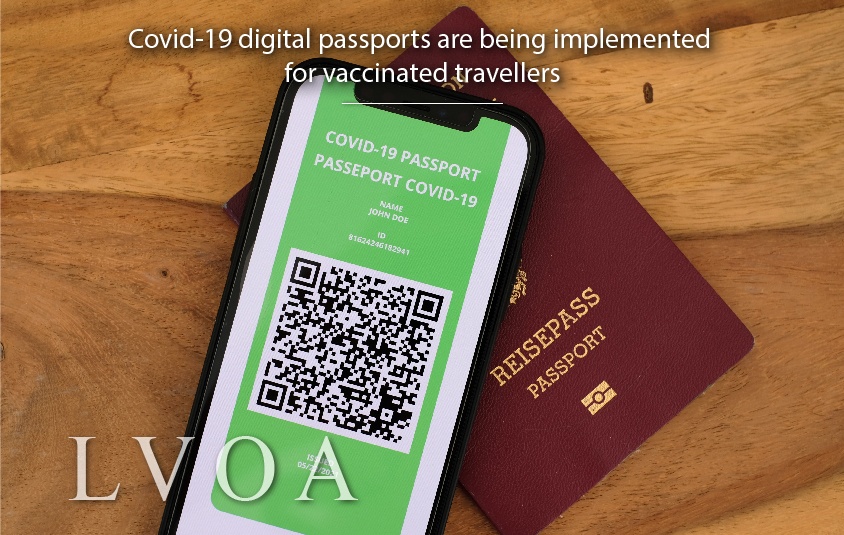According to John Hopkins and its sources, 161 countries are actively vaccinating and around 10% of the world’s population has been fully vaccinated already. These are amazing figures considering where we were this time last year or even just six months ago, at the dawn of 2021. The positive impact on the hospitality industry is evident already, yet there are also challenges to consider along the way. Here are a few key pros and cons as to what the vaccine means for hospitality:
Pro: Travel rebounds & vaxications
One of the most obvious benefits of the vaccine rollout is the return of travel, though this won’t happen overnight and what exactly travel will look like post-Covid is up for debate.
As the vaccine is administered across the globe, countries are opening up again to both inbound and outbound travel. For example, the UK’s traffic-light system has a list of “green” countries that are deemed safe to travel to, based on case numbers and vaccination rates – ideal for a “vaxication” (a post-vaccine trip). There’s also Thailand’s new “Phuket Sandbox” initiative that sees tourists arrive to the island without strict in-room quarantine, as of 1st July.
In the EU, the European Union Digital COVID Certificate is now live; a free app where users can verify health certificates via QR codes. Bulgaria, Croatia, Czech Republic, Denmark, Germany, Greece and Poland have already started using the technology and as of 1st July, there’s a six-week phasing period as the gateway is implemented across all EU member states. The hope is that this will help lift restrictions and reopen international borders.
Other than these immediate effects, there are also chain-reaction effects that will see the hospitality industry slowly return in small increments. As hospitality workers are vaccinated and lockdown curbs are lifted, customer confidence increases, which will result in increased business. Over time, things such as flight fares will potentially reduce as social distancing no longer needs to be maintained and travel opens up, which will in turn make travel more affordable again, and thus encourage more people to take trips.
Pro: Vaccine tourism
In the short term, a new type of travel has emerged in the form of “vaccine tourism.” A spin on medical tourism, vaccine tourism is when people travel in order to get the vaccine or a specific brand of vaccine, especially if the vaccine is free and easy to obtain in another state or country.
Many overseas workers have tied in a trip “home” with a vaccination, while others are travelling purely as tourists to acquire the vaccine as visitors, such as those from Latin American countries to the United States. In fact, the US is one of the top vaccine tourism destinations (though data is hard to collect and verify), as some states such as New York and Florida do not have a residency requirement for the vaccine. Vaccine tours to the States are being offered in places as far as India and Thailand, snapped up by those who can afford to travel internationally during this time and don’t want to wait for the slow vaccine rollout at home.
Although medical tourism is nothing new, Covid-19 vaccine tourism within this global pandemic is certainly controversial. A vaccination option for only the elite, vaccine tourism comes with ethical and legal issues, such as the disruption of supply and demand of the vaccine, which impacts distribution.
On the other hand, it’s hard to bemoan vaccine tourism when it’s also a much-needed opportunity for the hospitality industry. People are travelling internationally, booking accommodation and spending money in hospitality sectors – particularly for long stays between first and second doses. One can hardly blame the hospitality industry for taking advantage of a loophole already being taken advantage of by individuals.

Pro: Mental health
Perhaps a less reported on benefit of the vaccine is the change this is having on mental health. Hospitality workers have been among some of the most greatly affected in terms of industry and so the mental health impacts from reduced or lost work, plus financial worries, have truly taken their toll. The vaccine offers a light at the end of the tunnel for many, as well as something actionable that can be done by an individual to help turn things around. This glimmer of hope is sure to boost motivation and morale.
Con: Complacency
It’s important to remember that the vaccine does not prevent recipients catching or spreading the virus, it only reduces the severity of the disease. Therefore the same hygiene standards and precautions should be in place, such as wearing masks. A recent negative Covid-19 test is still needed to check that a traveller does not carry the virus.
What’s more, the vaccine diminishes symptoms, therefore it’s more difficult to tell if you have the virus, so arguably we should all be even more cautious at a time when it’s tempting to be more lax.
Con: Availability of the vaccine
As mentioned above, countries are rolling out vaccines at very different rates. As confirmed by John Hopkins’ vaccine data, developed nations are vaccinating far faster than less developed countries. China is leading the way in numbers of people fully vaccinated (around 223,300,000 as of mid-June), while small nations such as the Seychelles, San Marino and Malta feature in the top five when it comes to the percentage of the population fully vaccinated – all with over 50% inoculated.
Here in Thailand, vaccinations of the general public only started in June, with very confusing systems in place for registering (or not registering) certain groups of people, such as foreigners. In comparison, the UK has vaccinated the majority of the population, now inviting those in their 20s for vaccinations.
This means some countries will not be ready to receive travellers as their population is still vulnerable, while vaccinated travellers will be deterred from visiting countries with less robust vaccination rates.
As the vaccine rollout continues worldwide, we can only hope that some of the issues discussed above in regards to vaccine distribution are ironed out, and Covid-19 will finally be under control. One thing is for sure and that’s the quicker people get vaccinated, the quicker hospitality can bounce back.






